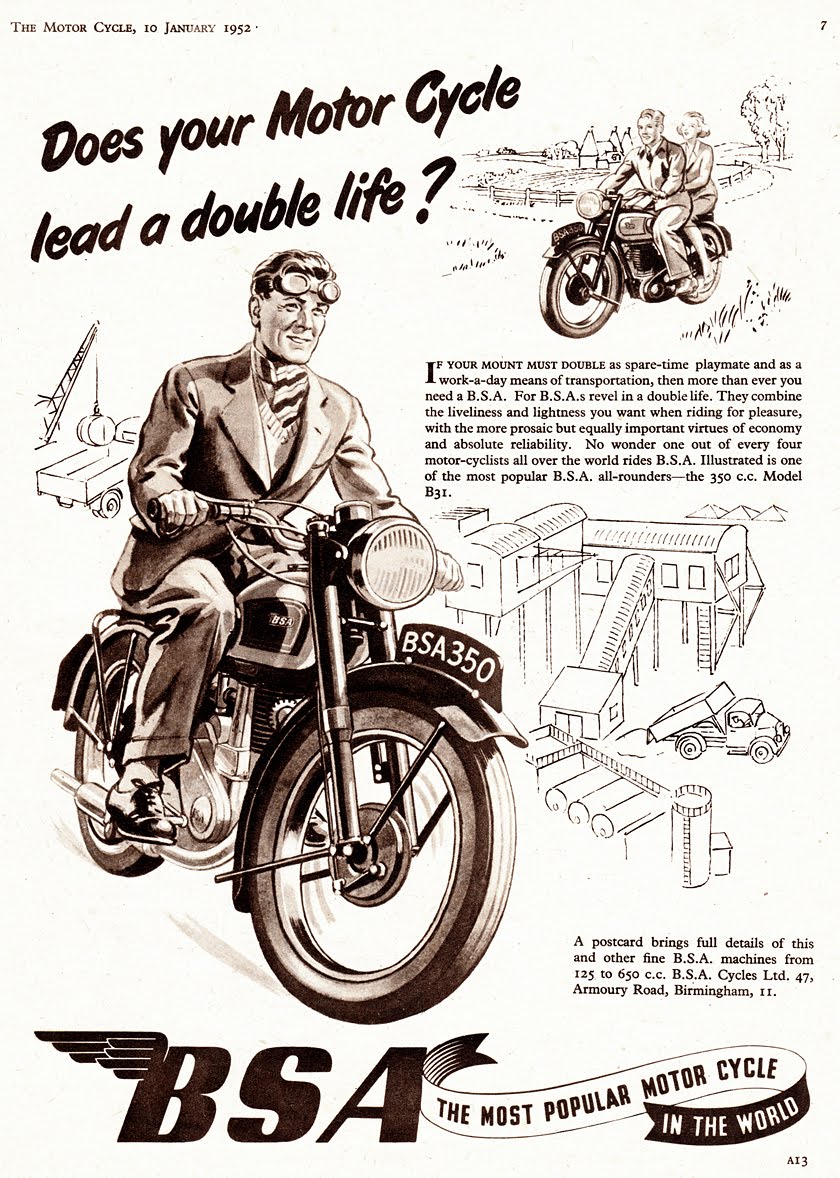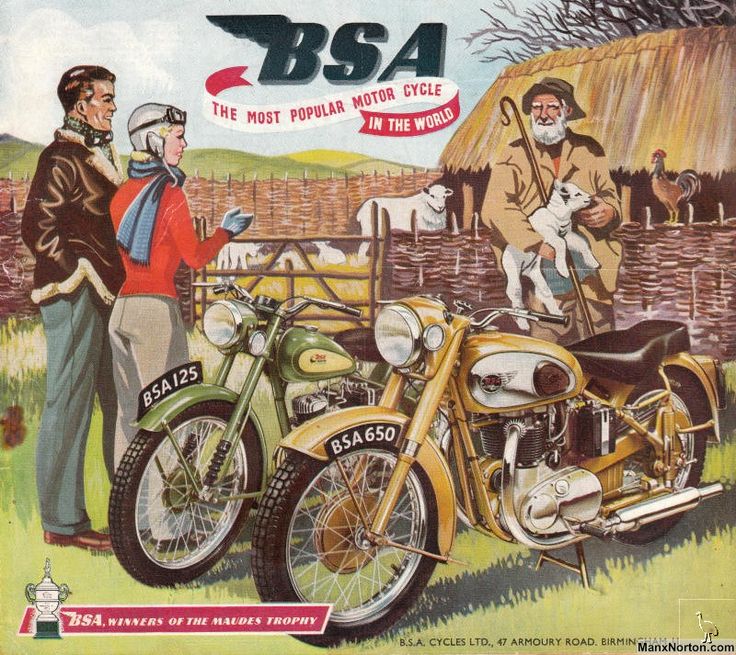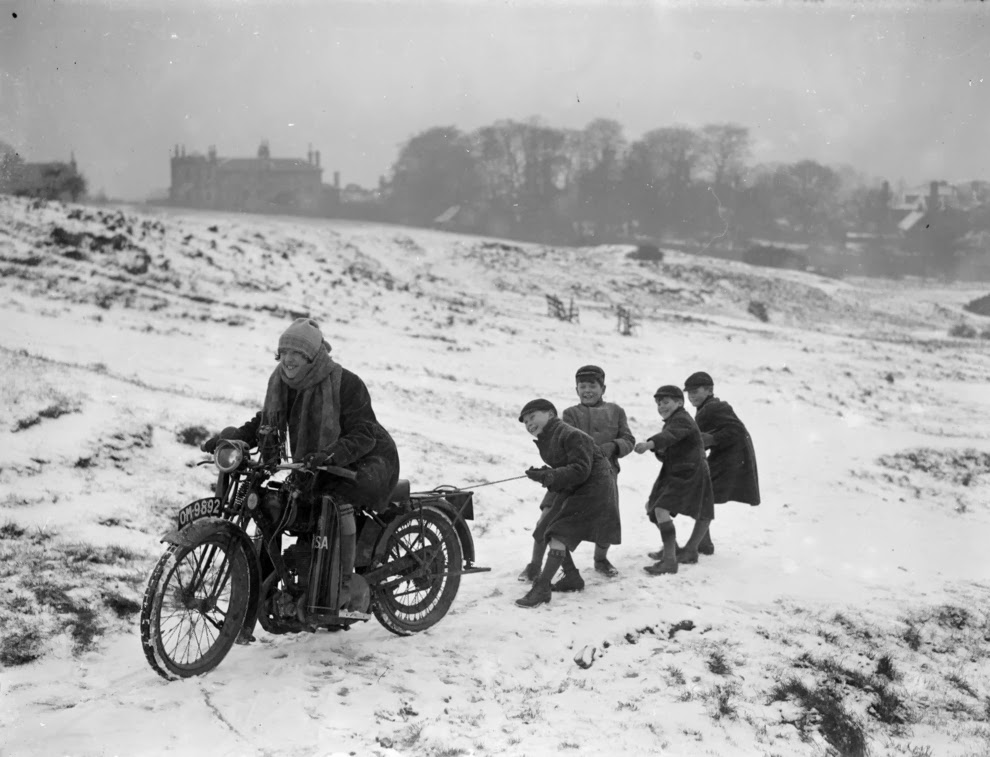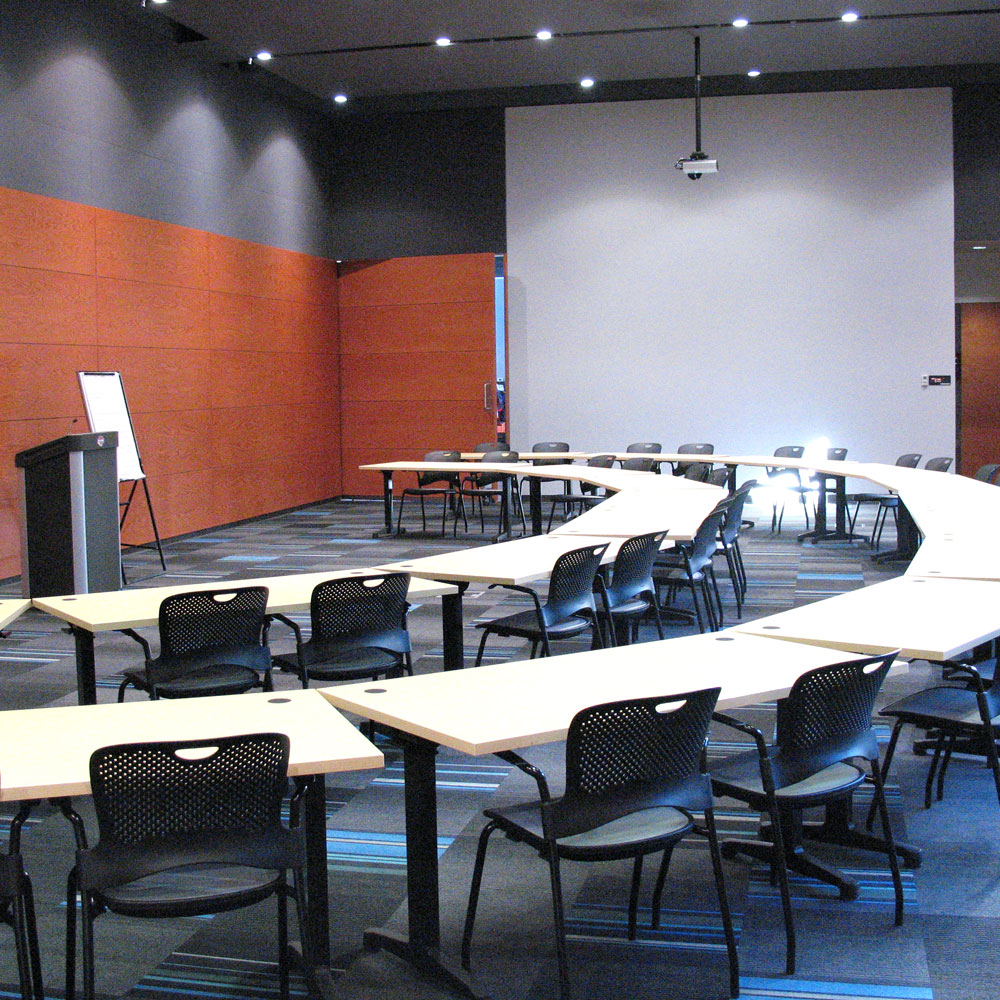Coming out this month is the fourth season of the hit BBC show Peaky Blinders. The show takes place in Birmingham, England after the First World War and follows a gang through all their debaucherous endeavors. One of which, featured in the first season, was the accidental stealing of arms from a BSA factory. Not many know of the military sector of the Birmingham Small Arms Company, but many do know the name through their history in manufacturing British Motorcycles.

Many of BSA’s factories were situated in Birmingham, also known as the workshop of the world. The company manufactured just about everything from military and sporting firearms, to bicycles, to cars, to tools, and of course to motorcycles. The first motorcycle officially manufactured by BSA was the 3 ½ H.P. Built in 1910, this bike was first displayed to the public at the 1910 Olympia Show in London, with the bike being made available for the 1911 season. Needless to say, this unique bike led to entire production being sold out.
As the brands motorcycle division grew, the company began to market their bikes as affordable and easily handled by beginners. Additionally, reliability, availability of spares, and dealer support were emphasized. A majority of BSA motorcycles were used for commuting; the models having a mixture of side valve and OHV engines. However, BSA made a push to have their motorcycles recognized in the racing realm as well. In 1954, in an attempt to improve U.S. sales, BSA entered a team of riders in the 200-mile Daytona beach race. In the end, they won 1st, 2nd, 4th, and 5th.
At its peak, BSA’s motorcycle division was the largest motorcycle producer in the world, owning smaller motorcycle companies such as Triumph, Ariel, and Sunbeam & New Hudson. Unfortunately, the company did not take seriously oncoming competition from the Japanese motorcycle companies. With Honda overtaking the company in 1959, BSA saw a dramatic decline in the 1950’s and 1960’s in sales. Inability to foresee Japanese competition and poor management led to the downfall of the company’s motorcycle division in the 1970’s. In 1972 there was a last-ditch effort to save the company by combining it with Norton-Villiers and Triumph, but that plan failed, with the last official BSA motorcycle being produced in 1973.




